
You are reading:

You are reading:
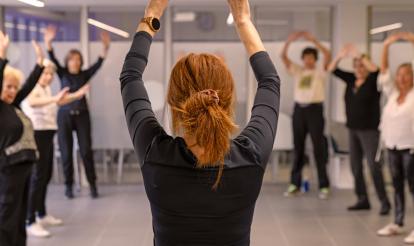
05.03.24
6 minutes readMaría Silvestre Cabrera is a full professor of Sociology at the University of Deusto, specialising in gender studies. In her presentation “Ageing from a Gender Perspective”, as part of the training sessions of the ”la Caixa” Foundation’s Siempre Acompañados programme, she highlighted the relationship between gender inequalities and the way in which men and women reach old age.
Gender equality is a fundamental right. But according to UN Women, if we do nothing, it will take another 100 years to achieve. “And that’s like saying it will never be achieved”, says María Silvestre, former director of Emakunde - Basque Institute for Women and the master’s programme in Intervention in Violence against Women at the University of Deusto.
Today, “there are many and varied indicators of gender inequalities that are reproduced in all spheres: social, political, labour, cultural, etc.”, continues the sociologist. The first response lies precisely in “recognising the sex-gender system in which we are immersed and the different values we assign to the two sexes”, says Silvestre.
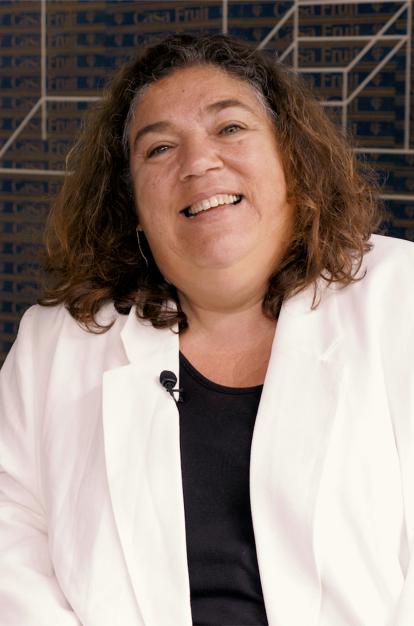
Secondly, we need to “begin to see the world through a feminist lens, to question reality as we know it and to be aware that our actions tend to perpetuate frameworks of inequality.” Finally, the professor stresses the importance of understanding something that seems very basic: that not all women and men are equal. “When we talk about older people, we have to take diversity into account, because age and inequalities do not affect everyone in the same way.”
“Inequality is universal, but it’s not natural,” says Silvestre. The philosopher Simone de Beauvoir said “You are not born a woman, you become one.” Although we are born biologically different, we learn to be socially different. “The problem”, she points out, “arises when the social construct turns difference into inequality”, and ageing, Silvestre maintains, is one of the most significant examples of inequality conditioned by gender roles.
Gender theory helps us understand how and why discrimination arises from diversity. According to Silvestre, the way men and women age, and our different perceptions of loneliness “are not solely the result of autonomous choices made throughout our lives”. Behind each choice, there are conditioning factors: gender roles, our socio-educational level, our social class, where we live, who we live with, etc.
Due to gender roles, women in general “take on much more care work throughout their lives”. According to the UN Women Strategic Plan 2022-2025, they perform three times more unpaid care and domestic work than men. “This has a direct impact on their health, autonomy, finances and pensions in old age as a result of the sexual division of labour”, confirms Silvestre.
Older women who are widowed and have not worked outside the home, for example, lose almost 50% of their husband’s contributory pension. And that, she argues, means that we are not attributing any value to the work they did so that their partner could work outside the home.
However, “these caring tasks have a positive return”, says Silvestre, “because they involve the development of socio-emotional skills that help women cope better with loneliness and the loss of paid work in old age.”
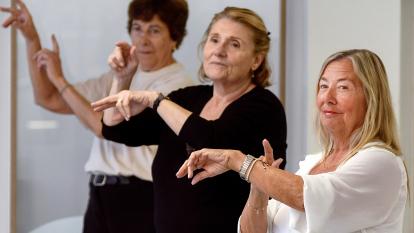
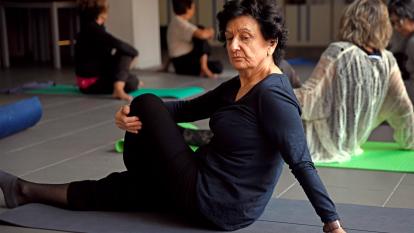

In Spain, almost 40% of people over the age of 65 say they feel lonely. What is more, according to the report La soledad en las personas mayores: prevalencia, características y estrategias de afrontamiento by the ”la Caixa” Foundation’s Programme for Elderly People, 68.5% of the people who come to its centres for the elderly feel lonely, although the percentage is lower among those who live alone.
“Living alone does not necessarily explain the feeling of loneliness”, explains Silvestre. Social isolation is one thing, which can be quantified and sought, and unwanted solitude, which is a negative and imposed feeling, is another. Silvestre argues that this loneliness is more related to the absence of meaningful relationships and the lack of belonging to a group, a situation that is closely linked to our emotional competence in forging new bonds in adulthood and our ability to communicate our vulnerability.
“These skills”, she says, “are much more developed in women because of the spaces they’ve frequented in their care work.” Most women tend to have a much more multidimensional identity than men: they have worked outside the home, but they have also been mothers, mothers-in-law, aunts, friends or wives. So their identity is less affected in retirement. “If they have a deficit, it’s that of not being taken care of”, adds Silvestre. “María Ángeles Durán, who’s also a sociologist, often says that older women accompany their partners in death (because they have a longer life expectancy) and yet they tend to die more alone and less cared for. For all these reasons,” concludes Silvestre, “when women get old, they’re often at greater risk of poverty, exclusion, discrimination and loneliness than older men.”
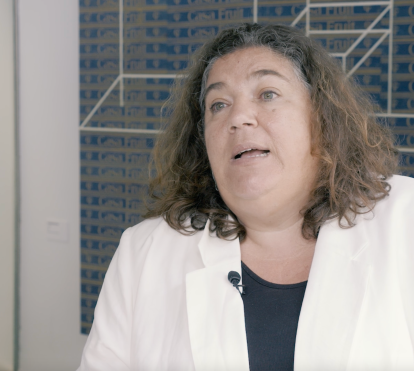
Faced with this reality, Silvestre has no shortage of ideas. First, she argues the need for a radical cultural and structural change that modifies gender roles. “Often, our policies respond to specific needs: the response addresses a need but does not generate change.” According to the sociologist, we must differentiate between practical needs and strategic gender interests. And she gives an example: “We’re promoting reconciliation measures, okay. But who mostly benefits from them? Women. Are we addressing a need for women? Yes. But are we ending the feminisation of care? No.”
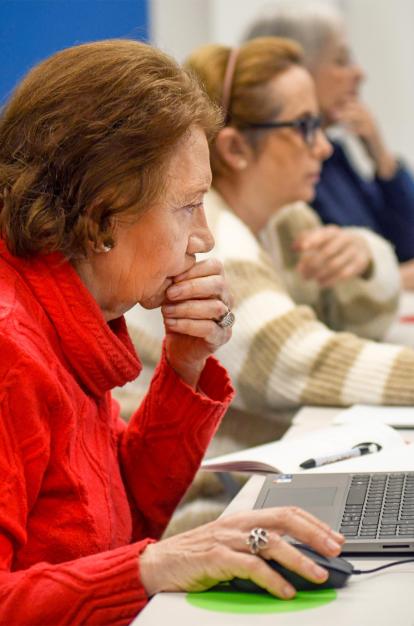
The solution to tackle the root of the problem, she explains, is to denaturalise the field of care and convince ourselves that it is not a private matter, but a public and universal issue that we can redefine. “Greater shared responsibility is needed, with society and the state taking an active role. And this also means that women should vacate certain areas of care.”
Likewise, Silvestre advocates the promotion of intergenerational policies or programmes, so that a greater mix in public and private areas promotes the integration of different social groups and ages. “Reclaiming the social value of old age and breaking down the stereotypes surrounding it is crucial. Especially in a society with a clear trend towards ageing.” According to UN data, one in six people in the world will be over 65 by 2050. “When people retire, they have more than 20 years of life expectancy ahead of them, much of which they can live independently and in good health. Growing old in this way is an achievement of humanity, so it’s contradictory to live in denial of ageing, as if we were immortal, and as if seeing older people reminded us of the end of a journey we don’t want to see, because, ‘with a little luck’”, she says, “we will all be old one day.”